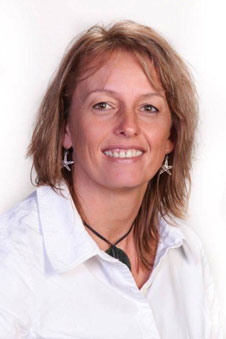Tuesday 28 October 2014 2:18pm

Kelli Te Maihāroa.
In 1877, Kelli Te Maihāroa’s tīpuna (great grandfather) led ‘Te Heke’ (the migration) from Temuka to Omarama. The peace march aimed to assert moral occupation of what Te Maihāroa and other Māori leaders of the time maintained was ancestral whenua (land).
“My tīpuna believe that we come from Papatūānuku, Earth Mother, and we are merely kaitiaki (guardians) of her, she does not belong to us,” Ms Te Maihāroa says.
Over 135 years later, Ms Te Maihāroa, a College of Education Professional Practice Fellow, is upholding the peace legacy of her whānau through both her own PhD research and with her new roles as the Australasian representative on the Asia-Pacific Peace Research Association (APPRA) and International Peace Research Council (IPRA).
As part of her PhD, Ms Te Maihāroa is researching the peace traditions of her people’s tribe – the Waitaha – the first people to inhabit Te Waipounamu (the South Island). A wider part of her research is also examining why other Māori prophets such as Nunukuwhenua (Moriori People), Rua Kenana (Tuhoe), Te Whiti o Rongomai and Tohu Kākahi (Parihaka Pā) also chose to use peaceful strategies when faced with the impact of colonisation.
“My research highlights the peaceful vision that many of our tīpuna held for a brighter future for their mokopuna (grandchildren),” she says. “This vision influences my work at the College in that I see education as a potential vehicle to equip the next generation to fulfil the dreams and aspirations of our ancestors.”
"I hope to share the peaceful traditions of my people and passive resistance strategies of Aotearoa as an alternative to violence."
Of her new positions on the APPRA and IPRA councils, Ms Te Maihāroa says it was an honour to be voted into the roles by her peers. She says she is looking forward to being able to participate in international discussion on peace, peace education, and indigenous peace traditions.
“To be honest, I feel that we are in a privileged position living in Aotearoa, where violence is not a daily threat to our survival. I see my role on this International Council as a support role to leaders from other countries that are facing unrest on a daily basis. Resolution has to come from within such countries”
“It may be useful to examine strategies that have supported the survival of our people over the last millennium. I hope to share the peaceful traditions of my people and passive resistance strategies of Aotearoa as an alternative to violence.”
Upon completing her PhD within the next couple of years, she plans to continue to work with student teachers who share her passion in making a difference in young peoples lives.
For now, Ms Te Maihāroa will continue learning about and sharing the peaceful traditions of her ancestors not only with the fellow APPRA and IPRA council members and student teachers, but also directly with her tribe’s next generation – her own five children:
“E kore au e ngaro, he kākano I ruia mai I Rangiātea – I shall never be lost, I am a seed scattered from Ranigatea.”
